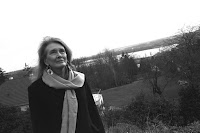Ascending Figure
This year's Nobel Prize in Literature is awarded to an american poetess and essayist for "her unmistakable poetic voice that with austere beauty makes individual existence universal."
Louise Elisabeth Glück – one of the purest and most talented contemporary litterateurs in her field. She is distinguished for the linguistic and technical accuracy of her poetry, her sensitivity and insight into matters of loneliness, family relationships, divorce and death. She is also noted for her "classicizing of gestures" - i.e. the frequent reworking of Greek and Roman myths in order to speak of destructive inter/personal relationships, existential despair and the agony of self.
A poetess with an extensive body of work and many highly prestigious awards for it, Louise Glück is currently an adjunct professor and Rosenkranz Writer in Residence at Yale University. Once, she said: "Writing is a kind of revenge against circumstances: bad luck, loss, pain." It applies to reading, too. After a series of unconventional and controversial choices that seemed somehow superficial, the Swedish Academy are back on track with this timely and insightful selection for the current circumstances.
Notes: You can read a random compilation of Louise Glück's poems here. / You can watch the Nobel Prize announcement here. / The portrait of the poetess is illustrated by Niklas Elmehed, the Swedish artist responsible for the official portraits of the Nobel Prize Laureates



